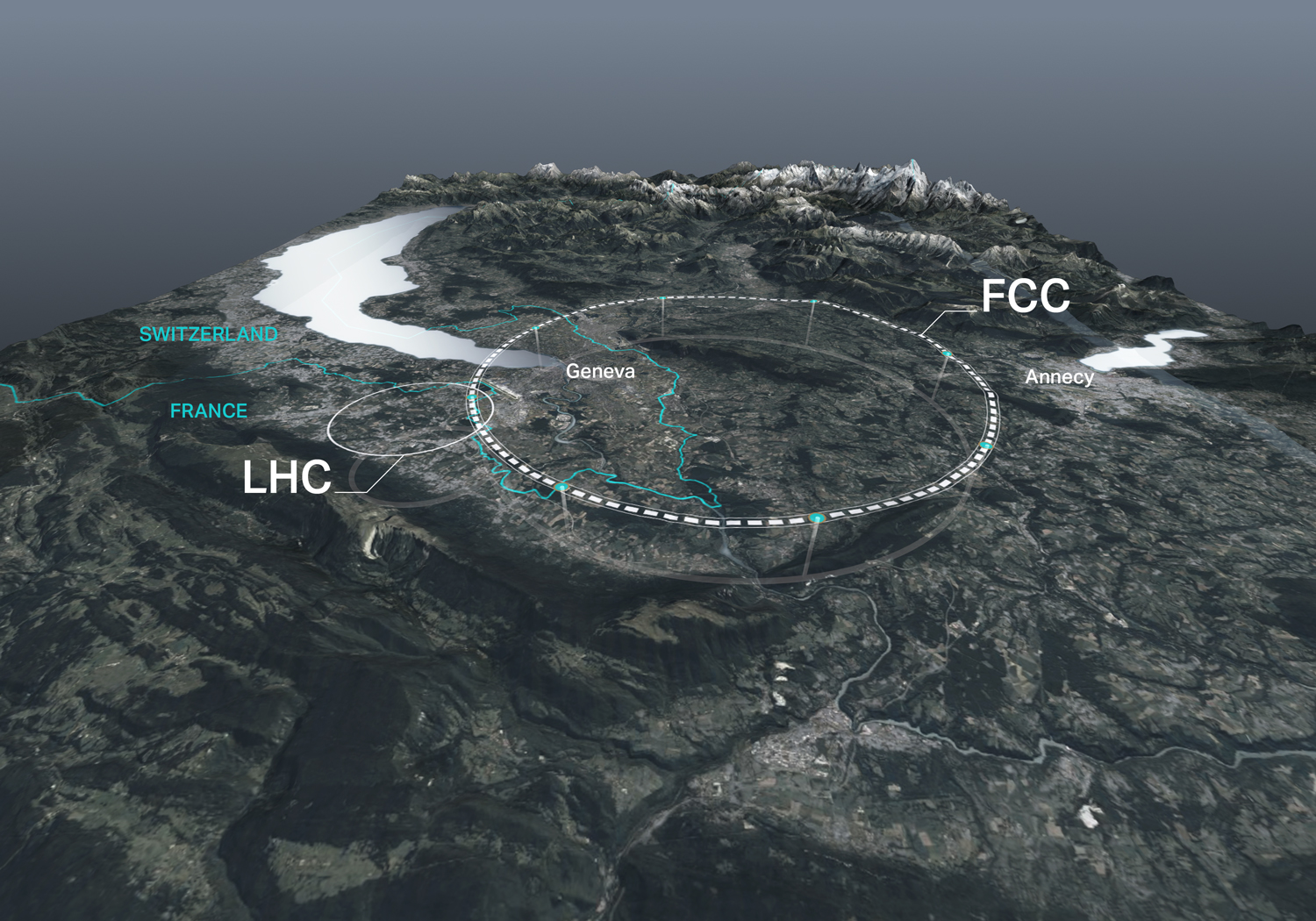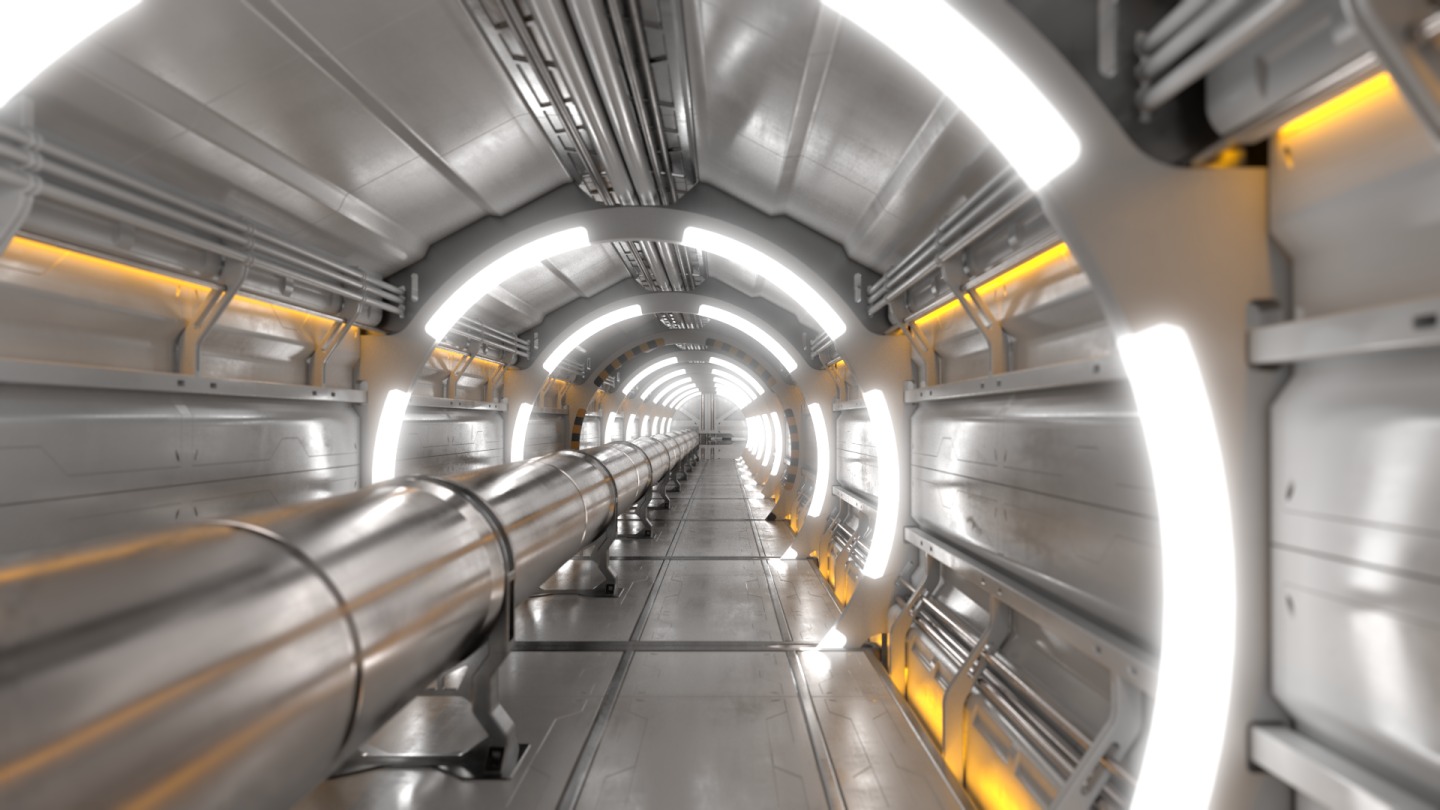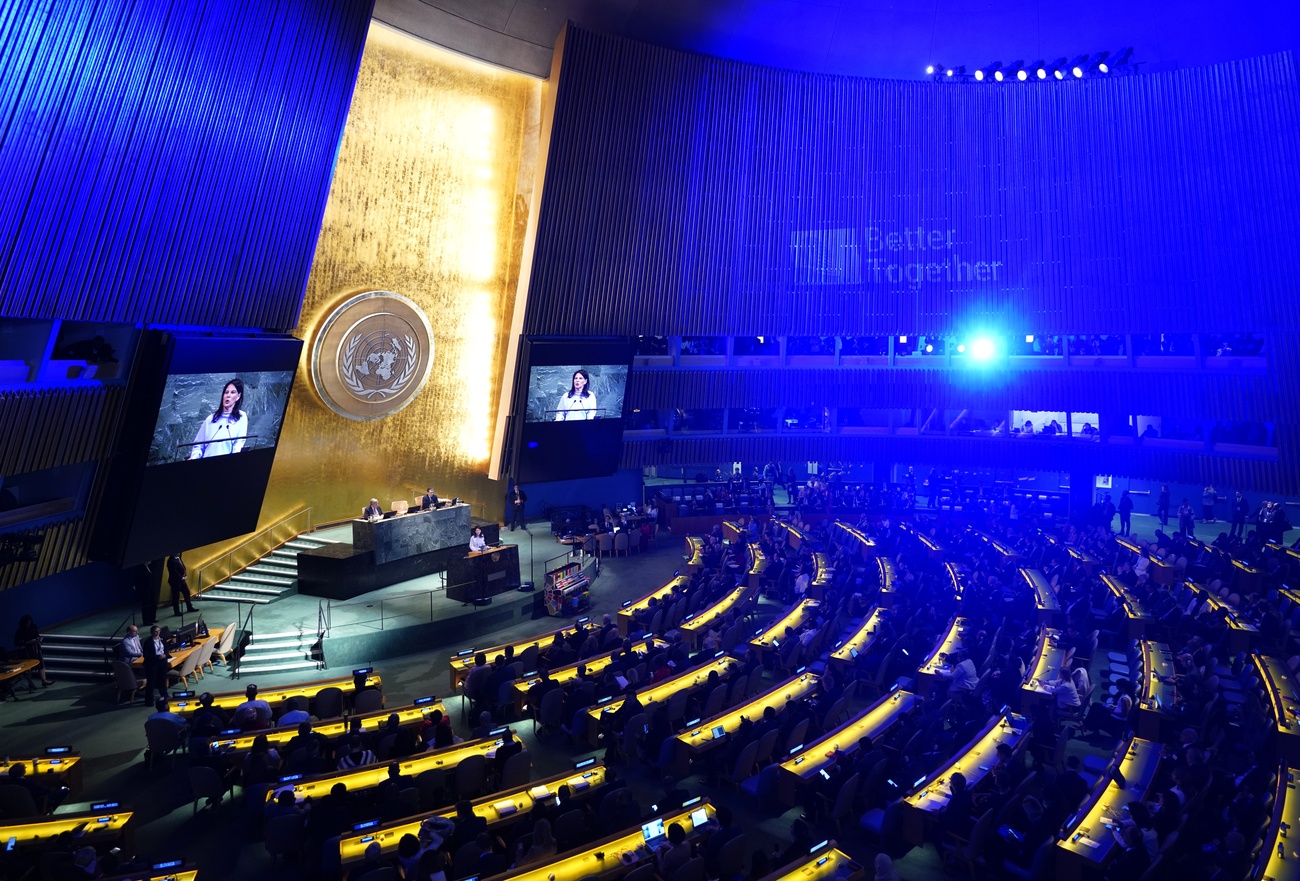
The concerns of people living along the route of CERN’s future collider

In Geneva and neighbouring France, the gigantic project for CERN's new particle accelerator, planned for 2045, is the subject of debate. Currently under study, its environmental impact is already causing concern among the local population.
The small French commune of Charvonnex, 35 kilometres south of Geneva, is still an unspoilt place: one road surrounded by forests and fields.
This rural setting will soon be a thing of the past. The municipality lies on the route of the future CERN Collider (FCC). This is where one of the FCC’s eight surface sites will be located, covering an area of five hectares. The tunnel, meanwhile, will be dug to a depth of 200 metres and will be 91 kilometres long.

More
‘Momentum building’ around CERN’s next particle collider
An ecological contradiction?
“It’s an area that’s already saturated with construction work and concrete. I’m afraid that the CERN project will cause a rebellion on top of it”, says Benjamin Joyeux, a native of Fillinges in Haute-Savoie.
The Auvergne-Rhône-Alpes regional councillor fears the local repercussions of the project, but that’s not all. A member of the Les Écologistes party, he believes that the energy consumption and CO2 emissions resulting from the future FCC are an aberration: “At a time when people are being asked to make an effort to reduce their greenhouse gas emissions, the CERN project is adding tonnes and tonnes of CO2 emissions.”
A project involving several tonnes of CO2
According to CERN, it is too early to know how much CO2 will be released. Work is expected to start in 2032 and the FCC will be operational around 2045. But the institution acknowledges that an effort will have to be made.
“The civil engineering work will indeed emit CO2,” says Jean-Paul Burnet, the engineer in charge of the FCC feasibility study. “We are trying to find innovative solutions that will reduce the impact of this work. We have some initial results from the research and development we have carried out. We know that we will be able to achieve much lower consumption than would have been possible with current technologies.”
Not a priority for many
CERN is playing for time, but the debate is not waiting. In neighbouring France as well as in Geneva, groups opposed to the project are being organised by environmental parties. For many, the project is far from being a priority. “Is it worth investing all these resources in terms of time and energy?” asks one Geneva resident.
For the regional councillor for Auvergne-Rhône-Alpes, it is not a question of questioning the scientific interest of the project, but of “doing everything possible to reflect ethically on whether this project is really the priority in the face of a planet whose climate and biodiversity are collapsing”.
The cost of knowledge
Burnet believes that human beings need to increase their knowledge and understand the universe. “Today, this machine is the only one that has been identified to answer these questions. As soon as we understand the goal, why we want to understand the universe, why we want to understand matter, we can accept that sacrifices will have to be made in this area, but these can be compensated for at a later date.” The project, estimated to cost CHF13 billion ($14 billion) in its initial phase, raises a number of questions. To convince the uninformed public, CERN will be holding an information session on Wednesday.

In compliance with the JTI standards
More: SWI swissinfo.ch certified by the Journalism Trust Initiative





























You can find an overview of ongoing debates with our journalists here . Please join us!
If you want to start a conversation about a topic raised in this article or want to report factual errors, email us at english@swissinfo.ch.